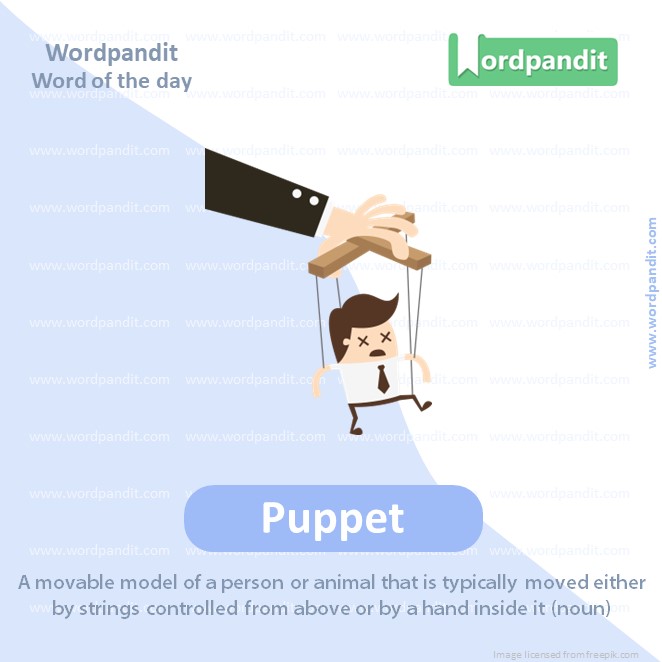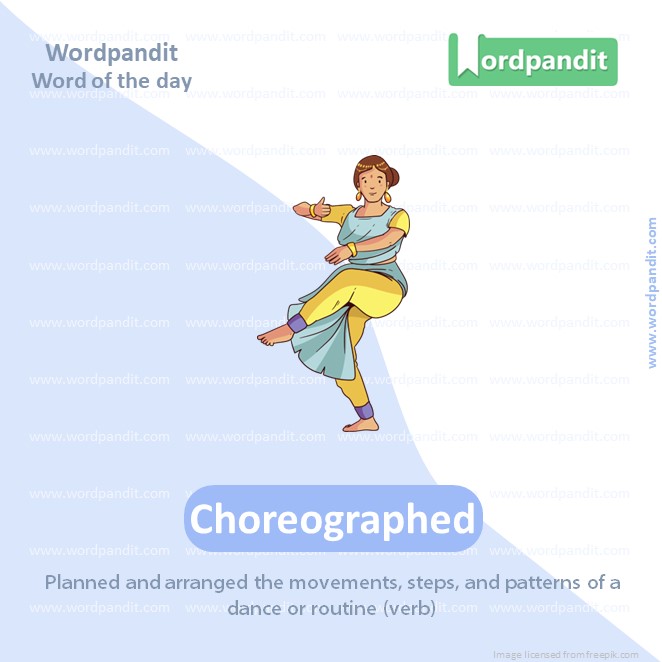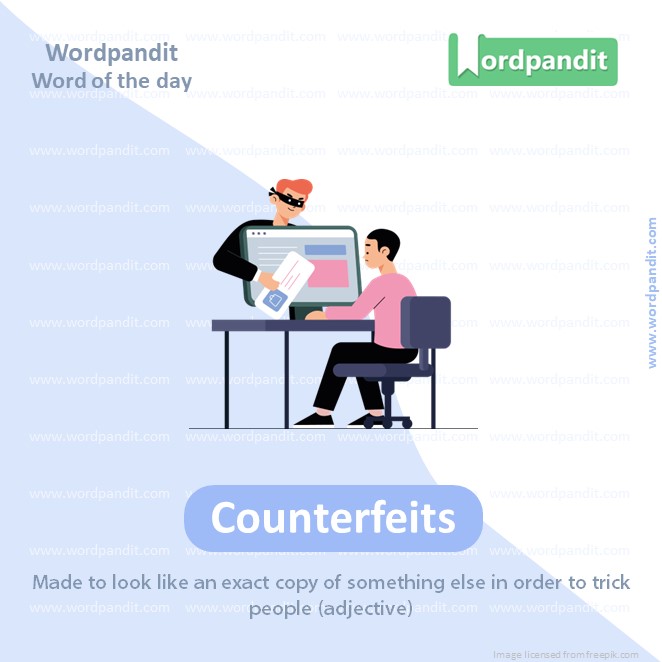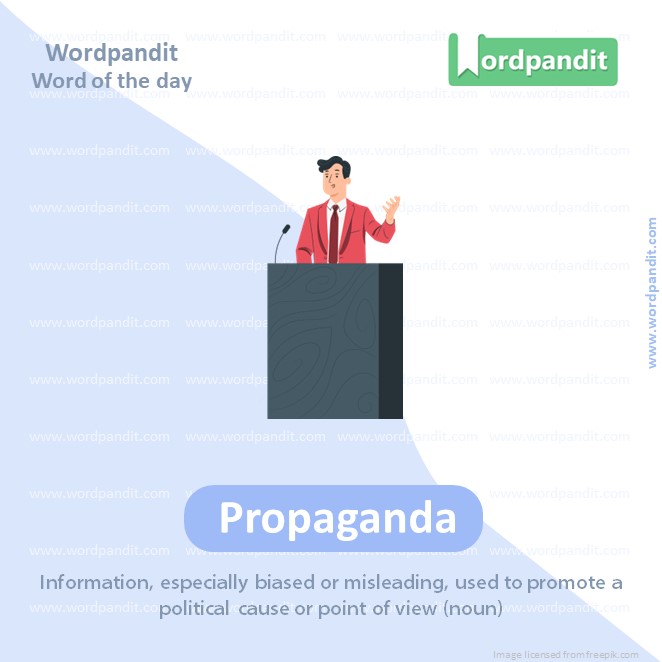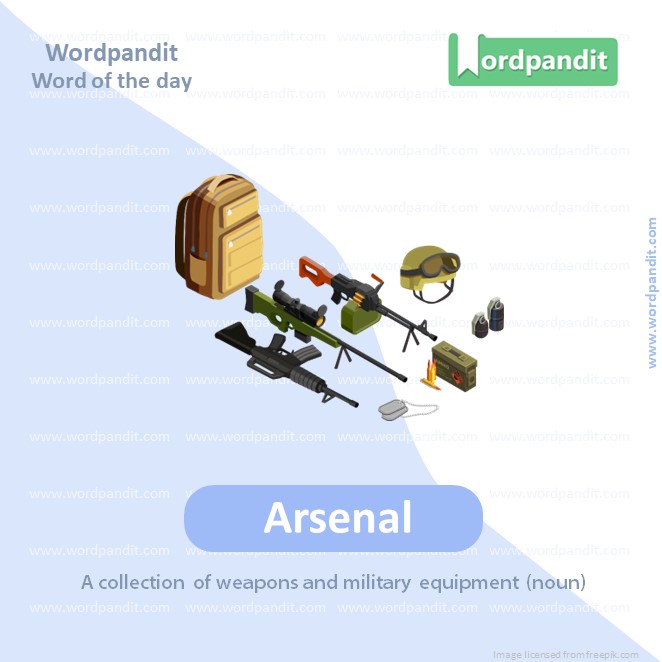Daily Vocabulary from International Newspapers and Publications
Expand Your Vocabulary with Wordpandit’s Global Vocabulary Hub
At Wordpandit, we are committed to helping you develop a truly global vocabulary by drawing from some of the most respected international publications. This section is designed to keep you ahead of the curve by introducing you to words that define global conversations and trends.
The Power of Global Sources
To help you think and communicate on a global scale, we curate vocabulary from renowned international sources, such as:
- The New York Times
- The Washington Post
- BBC
- The Guardian
- The Economist
- Scientific American
- Psychology Today
- And many more...
Stay Global, Stay Competitive
Our daily updates from international publications ensure you are consistently exposed to new words that reflect global news and developments, making sure your vocabulary is not only current but also globally relevant.
Enhance Your Global Perspective
Whether you’re preparing for international exams, aiming to excel in global business communication, or want to enhance your language skills for personal growth, Wordpandit offers the resources you need to thrive in a global context.
Effective Learning, Global Reach
Our learning methodology combines global examples, memory aids, and interactive activities, allowing you to internalize new words effectively and apply them in real-world scenarios.
Begin Your Global Vocabulary Journey Now!
Why Choose Wordpandit?
Practical Learning: Focus on words you'll actually encounter in real-world reading, enhancing your comprehension and communication skills.
Diverse Content: From current affairs to scientific breakthroughs, our varied sources expose you to vocabulary across multiple domains.
Effortless Integration: Make Wordpandit a part of your daily routine. Just a few minutes each day can significantly boost your lexicon over time.
Your Path to Vocabulary Mastery
- Visit our Daily Vocabulary section regularly
- Explore new words and their usage in context
- Practice incorporating these words into your own writing and speech
- Track your progress as your vocabulary expands
Start Your Journey Today
Embark on your vocabulary enhancement journey with Wordpandit. By consistently engaging with our daily posts, you'll build a robust vocabulary that serves you well in academic, professional, and personal contexts.
Remember, a word a day keeps linguistic limitations at bay. Make Wordpandit your daily companion in the quest for vocabulary excellence!
WORD-1: Puppet
Context:
"The choreographed rallies, puppet rivals and Potemkin village polling stations are not subtle counterfeits designed to be mistaken for the genuine article." - The Guardian
Explanatory Paragraph:
The word "puppet" typically refers to a small figure controlled by strings, rods, or hands, often used in performances. However, in a figurative sense, it describes a person or entity manipulated by an external force, lacking real power or independence. In politics, a "puppet leader" is one controlled by a more powerful entity, making decisions that serve another's interests.
Meaning: A figure controlled by strings or hands; a person who is controlled by another (Noun)
Pronunciation: PUH-pit
Difficulty Level: ⭐⭐ Beginner
Etymology: From Middle French "poupette," meaning "doll" or "small child," derived from Latin "pupa" (girl, doll).
Prashant Sir's Notes:
The term "puppet" is commonly searched in phrases like "puppet government," which refers to a government that is controlled by an external power, and "puppet master," which describes someone who secretly controls others. Another popular phrase is "puppet regime," which is often used in political contexts.
Synonyms & Antonyms:
Synonyms: marionette, pawn, figurehead, stooge, proxy
Antonyms: leader, independent thinker, autonomous entity
Usage Examples:
- The dictator installed a puppet government to give the illusion of democracy.
- Many believe the CEO is just a puppet, with real decisions made by the board.
- The marionette show featured beautifully crafted wooden puppets.
- The young prince was merely a puppet ruler, with his advisors making all the important decisions.
Cultural Reference:
"The Godfather" features a famous visual of a puppet hand on the movie poster, symbolizing control and manipulation, much like how Don Corleone controls those under his influence.
Think About It:
In what ways do modern media and political systems create "puppets" in society?
Quick Activity:
List three historical or fictional figures who were considered "puppet rulers" and explain why.
Memory Tip:
Think of a puppet show where the figures move but do not act on their own will—just like how a "puppet leader" is controlled by someone else.
Real-World Application:
The term "puppet" is frequently used in political discussions to describe leaders or governments that lack real autonomy and serve the interests of more powerful entities.
WORD-2: Choreographed
Context:
"The choreographed rallies, puppet rivals and Potemkin village polling stations are not subtle counterfeits designed to be mistaken for the genuine article." - The Guardian
Explanatory Paragraph:
The word "choreographed" originally comes from the world of dance and performance, where it refers to the careful planning and arrangement of movements. However, it is often used metaphorically to describe events, actions, or situations that are carefully planned or staged to create a particular impression. In political or media contexts, a "choreographed event" may refer to something designed to appear spontaneous but is actually pre-planned for maximum impact.
Meaning: Carefully planned or orchestrated to achieve a specific effect (Verb, past tense of "choreograph")
Pronunciation: KOR-ee-uh-grafd
Difficulty Level: ⭐⭐⭐ Intermediate
Etymology: From Greek "khoreia" (dance) + "graphia" (writing), meaning "dance writing."
Prashant Sir's Notes:
The word "choreographed" is frequently searched in phrases like "choreographed event," "choreographed stunt," and "choreographed fight scene." In political discussions, it is often used in the context of "choreographed speeches" or "choreographed rallies," referring to well-rehearsed public appearances meant to shape public perception.
Synonyms & Antonyms:
Synonyms: orchestrated, scripted, staged, arranged, rehearsed
Antonyms: spontaneous, unplanned, impromptu, unstructured
Usage Examples:
- The debate felt more like a choreographed performance than a real exchange of ideas.
- The fight scene in the movie was beautifully choreographed to look both realistic and dramatic.
- His public apology seemed choreographed, as if every word had been rehearsed in advance.
- The CEO’s speech was carefully choreographed to reassure investors about the company’s future.
Cultural Reference:
The Broadway musical "Hamilton" is known for its highly choreographed performances, where every movement is carefully planned to enhance storytelling.
Think About It:
How can you tell when an event is genuinely spontaneous versus when it has been choreographed to create a specific impression?
Quick Activity:
Think of a recent political or media event. Do you believe it was choreographed? Why or why not?
Memory Tip:
Imagine a dance performance where every step is planned—just like a "choreographed speech" where every word and gesture is carefully arranged.
Real-World Application:
The term "choreographed" is often used in news and media to describe political rallies, award shows, or even social media trends that appear natural but are actually carefully planned.
WORD-3: Counterfeits
Context:
"The choreographed rallies, puppet rivals and Potemkin village polling stations are not subtle counterfeits designed to be mistaken for the genuine article." - The Guardian
Explanatory Paragraph:
The word "counterfeits" refers to fake or fraudulent copies of something, typically made to deceive people into thinking they are genuine. While it is often used to describe fake currency or luxury goods, it can also refer to anything that is an imitation, including documents, signatures, or even emotions. The goal of a counterfeit is usually to mislead people for financial gain or manipulation.
Meaning: Fake copies made to deceive people into believing they are real (Noun, plural of "counterfeit")
Pronunciation: KOWN-ter-fits
Difficulty Level: ⭐⭐⭐ Intermediate
Etymology: From Old French "contrefait," meaning "imitated," from Latin "contra" (against) + "facere" (to make).
Prashant Sir's Notes:
The word "counterfeit" is frequently searched in phrases such as "counterfeit money," "counterfeit goods," and "counterfeit documents." It is commonly associated with financial fraud, fake luxury brands, and identity theft. Another popular phrase is "counterfeit check," which refers to fake financial instruments used in scams.
Synonyms & Antonyms:
Synonyms: forgery, fake, imitation, sham, replica
Antonyms: genuine, authentic, real, legitimate
Usage Examples:
- The police confiscated a shipment of counterfeit luxury watches.
- Authorities warned against using counterfeit currency, which is difficult to detect at first glance.
- His apology felt like a counterfeit expression of remorse, lacking sincerity.
- The market was flooded with counterfeit designer handbags that looked almost identical to the originals.
Cultural Reference:
In the movie "Catch Me If You Can," Leonardo DiCaprio plays Frank Abagnale, a real-life con artist who forged counterfeit checks and documents to live a lavish lifestyle.
Think About It:
Why do people create counterfeits, and how can we protect ourselves from being deceived by them?
Quick Activity:
Research a famous case of counterfeiting in history and write a short summary of how it impacted society.
Memory Tip:
Remember "counterfeit" by breaking it down: "counter" (against) + "feit" (from Latin "facere," meaning "to make"). It literally means "made against the real thing."
Real-World Application:
Counterfeits are a major issue in the fashion, pharmaceutical, and financial industries. Banks use special technology to detect counterfeit money, and brands invest in anti-counterfeiting measures to protect their products.
WORD-4: Propaganda
Context:
"Cultivating contempt for democracy is one of the most powerful propaganda weapons in a despot’s arsenal." - The Guardian
Explanatory Paragraph:
Propaganda refers to biased or misleading information spread to promote a particular cause, viewpoint, or agenda. It is often used by governments, political groups, and media organizations to shape public opinion, sometimes by distorting facts or omitting important details. While propaganda is commonly associated with authoritarian regimes, it can also be found in democratic societies in the form of advertising, political campaigns, or social media manipulation.
Meaning: Information, often misleading or biased, used to influence public opinion (Noun)
Pronunciation: prop-uh-GAN-duh
Difficulty Level: ⭐⭐⭐⭐ Advanced
Etymology: From Latin "propagare" (to spread), originally referring to the Catholic Church’s efforts to spread faith.
Prashant Sir's Notes:
The term "propaganda" is frequently searched in phrases like "war propaganda," "political propaganda," and "media propaganda." Another common phrase is "propaganda machine," which refers to a system designed to continuously spread biased information. In modern times, "fake news" and "misinformation" are often linked to propaganda.
Synonyms & Antonyms:
Synonyms: misinformation, indoctrination, manipulation, spin, disinformation
Antonyms: truth, facts, reality, objectivity, transparency
Usage Examples:
- The government used propaganda to convince people that the war was necessary.
- During the Cold War, both sides engaged in propaganda to promote their political ideologies.
- Social media has become a powerful tool for spreading propaganda, both intentionally and unintentionally.
- The dictator’s regime controlled the media and flooded the country with propaganda to maintain power.
Cultural Reference:
George Orwell’s novel *1984* explores the use of propaganda by a totalitarian government, including slogans like "War is Peace" and "Big Brother is Watching You."
Think About It:
How can people differentiate between propaganda and legitimate information in today’s media landscape?
Quick Activity:
Find an example of propaganda in history or current events and analyze how it was used to influence public opinion.
Memory Tip:
Remember "propaganda" by thinking of "propagating" a message—whether true or false—to influence people.
Real-World Application:
Understanding propaganda is essential in the digital age, where misinformation spreads rapidly. Critical thinking and fact-checking help individuals navigate biased media narratives.
WORD-5: Arsenal
Context:
"Cultivating contempt for democracy is one of the most powerful propaganda weapons in a despot’s arsenal." - The Guardian
Explanatory Paragraph:
The word "arsenal" traditionally refers to a collection of weapons and military equipment stored for use in warfare. However, in a figurative sense, it can describe a collection of resources, tools, or strategies available to someone for achieving a particular goal. For example, a writer might have an "arsenal of vocabulary," or a company may have an "arsenal of marketing strategies."
Meaning: A collection of weapons or resources used for a particular purpose (Noun)
Pronunciation: AR-suh-nuhl
Difficulty Level: ⭐⭐⭐ Intermediate
Etymology: From Italian "arsenale," which comes from Arabic "dār al-ṣinā‘a" (house of manufacturing).
Prashant Sir's Notes:
The word "arsenal" is frequently searched in phrases like "nuclear arsenal," referring to a country's collection of nuclear weapons, and "military arsenal," which denotes a nation's stockpile of arms. In a non-military sense, "arsenal of skills" and "arsenal of tools" are common phrases used to describe a collection of abilities or resources.
Synonyms & Antonyms:
Synonyms: stockpile, cache, collection, reserve, repository
Antonyms: shortage, scarcity, depletion, deficit
Usage Examples:
- The country’s nuclear arsenal has been a topic of international debate.
- A skilled negotiator has an arsenal of persuasive techniques at their disposal.
- The team built an arsenal of data-driven strategies to improve their sales.
- His arsenal of jokes made him the life of the party.
Cultural Reference:
Arsenal Football Club, based in London, is one of the most famous football teams in the world, named after the Royal Arsenal, a historic armament factory.
Think About It:
How does the meaning of "arsenal" change when used in a military context versus a non-military context?
Quick Activity:
List three areas of life where "arsenal" can be used metaphorically (e.g., an arsenal of knowledge) and explain why.
Memory Tip:
Think of an arsenal as a storage room filled with weapons—or in a broader sense, a collection of anything useful for a particular purpose.
Real-World Application:
In today's digital world, cybersecurity experts maintain an arsenal of tools to protect systems from cyber threats, just as athletes build an arsenal of skills to enhance their performance.



